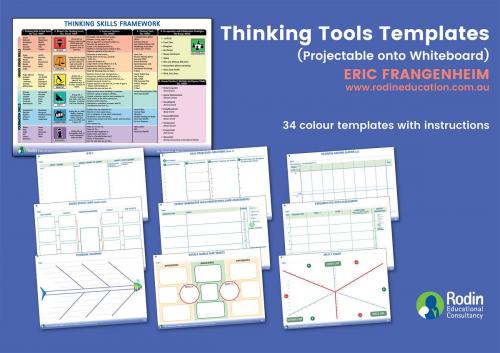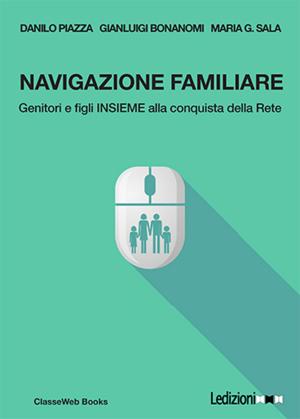Thinking Tools Templates
Projectable onto whiteboard
Nonfiction, Reference & Language, Education & Teaching| Author: | Eric Frangenheim | ISBN: | 9780957703780 |
| Publisher: | Rodin Educational Consultancy | Publication: | December 15, 2009 |
| Imprint: | Language: | English |
| Author: | Eric Frangenheim |
| ISBN: | 9780957703780 |
| Publisher: | Rodin Educational Consultancy |
| Publication: | December 15, 2009 |
| Imprint: | |
| Language: | English |
The 'Thinking Tools Templates: Projectable onto whiteboard' is an easy-to-use resource by educational consultant Eric Frangenheim to help save teachers time and effort and make lessons more exciting, fun and challenging for students. The beauty of these thinking tools templates is that they weave foundation and higher-order thinking tools into classrooms every day. These templates also ensure your students are busier than you are - that's when you know they are 'owning the learning'.
Teachers, to use this resource simply project the chosen thinking tools template onto your whiteboard, then use a whiteboard pen to record the ideas flowing from your students. These templates enable you to delve straight into your lesson. They act as a springboard for students to get busy, to 'own the thinking' and to become confident in scaffolding their own ideas.
The Thinking Tools Templates are each referenced to levels of Bloom's Taxonomy of the Cognitive Domain. For example, each template is linked to task verbs or thinking skills (such as 'examine' or 'discuss' for the Bloom's 'Analysis' level of cognition) where a SWOT Analysis, Extended PCQ or Icon Prompt would be a possible template to employ.
The Thinking Tools Templates complement Eric's signature book for teachers, 'Reflections on Classroom Thinking Strategies: How to create your thinking classroom with 42 practical and engaging thinking tools'. This best-selling book shows you how to teach thinking tools confidently, so you can love your job more and create your ultimate thinking classroom. Importantly, it also guides you to teach your students how to use thinking tools so they can become vibrant, independent thinkers. By 2018, Reflections had sold 35,000 copies and remains a trusted teaching resource for teachers and graduates.
Eric reminds teachers: "The best learning takes place when the teacher is quiet". But this depends on a) a clear question or activity (containing a task verb); b) an appropriate thinking tool template (e.g. a Double Bubble Map); and c) a clear time frame (e.g. you have 20 minutes: go!). Enjoy.
The 'Thinking Tools Templates: Projectable onto whiteboard' is an easy-to-use resource by educational consultant Eric Frangenheim to help save teachers time and effort and make lessons more exciting, fun and challenging for students. The beauty of these thinking tools templates is that they weave foundation and higher-order thinking tools into classrooms every day. These templates also ensure your students are busier than you are - that's when you know they are 'owning the learning'.
Teachers, to use this resource simply project the chosen thinking tools template onto your whiteboard, then use a whiteboard pen to record the ideas flowing from your students. These templates enable you to delve straight into your lesson. They act as a springboard for students to get busy, to 'own the thinking' and to become confident in scaffolding their own ideas.
The Thinking Tools Templates are each referenced to levels of Bloom's Taxonomy of the Cognitive Domain. For example, each template is linked to task verbs or thinking skills (such as 'examine' or 'discuss' for the Bloom's 'Analysis' level of cognition) where a SWOT Analysis, Extended PCQ or Icon Prompt would be a possible template to employ.
The Thinking Tools Templates complement Eric's signature book for teachers, 'Reflections on Classroom Thinking Strategies: How to create your thinking classroom with 42 practical and engaging thinking tools'. This best-selling book shows you how to teach thinking tools confidently, so you can love your job more and create your ultimate thinking classroom. Importantly, it also guides you to teach your students how to use thinking tools so they can become vibrant, independent thinkers. By 2018, Reflections had sold 35,000 copies and remains a trusted teaching resource for teachers and graduates.
Eric reminds teachers: "The best learning takes place when the teacher is quiet". But this depends on a) a clear question or activity (containing a task verb); b) an appropriate thinking tool template (e.g. a Double Bubble Map); and c) a clear time frame (e.g. you have 20 minutes: go!). Enjoy.















